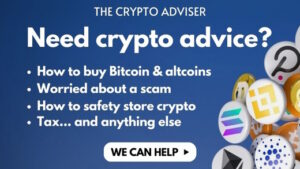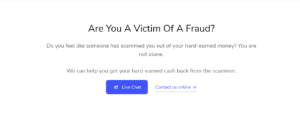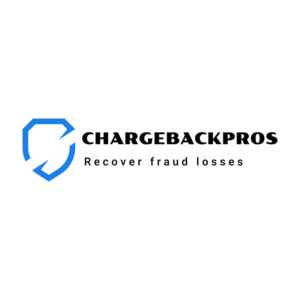Wash trading is a dominant form of fraud in the young NFT marketplace, and has already yielded scammers millions in illicit gains. In this post, we explain what wash trading is and how to warn your customers about it.
If you’ve been keeping an ear on NFTs, then you’ve probably heard about something called “wash trading,” and what a concern it is for this nascent marketplace.
Wash trading has emerged as a central typology for financial crime in the NFT space. Many stakeholders, from investors to regulators, have expressed apprehension about the ease with which scammers using this method are able to fool consumers and make off with big ill-gotten rewards.
If you’re a business owner in the crypto space, we encourage you to take steps to increase consumer awareness of scams and other illicit activity as a matter of consumer protection and proactive self-regulation. This post will help you understand NFT wash trading so that you can inform your customers via disclosures.
If you’re a consumer, this post will help you understand wash trading and hopefully prevent you from becoming a potential victim yourself.
Lastly, if you are considering offering NFT-related products or services, we encourage you to read our post on NFT compliance here.
Does this apply to your business?
Wash trading poses the biggest risks to exchanges, P2P traders, and business owners specifically focused on NFTs.
However, the typology is considered a big red flag all its own for every business model across the industry. Even entrepreneurs operating modest kiosk networks will inevitably encounter customers who may overlap with the NFT marketplace in some form.
Thus, being knowledgeable about NFT scam typologies and including details in consumer disclosures is a compliance best practice.
What is wash trading?
To start, let’s define wash trading.
Wash trading is a market manipulation tactic in which the seller is working both sides of the transaction. The seller creates a false impression of market interest (or “buzz”) by listing a repurchasing an asset (in this case, an NFT) over and over in order to drive up the price.
Sellers may operate complex scams largely on their own, but it is also just as possible that numerous scammers network together and wash trade NFTs back and forth, creating more of an “organic” appearance to the trading activity.
The result is that when a regular consumer comes along, there is a perceived pattern of interest in the NFT, which seems to be highly valuable and competitively sought after.
Seeing high trade volume and an ever-increasing price tag can dupe a consumer into believing that investing into the NFT now will yield a massive profit dividend down the line.
A typical example might look like this: An NFT listed on OpenSea is listed at $50, and then after a wash trading scheme is executed, it is re-listed at $1,000. An NFT collector or trader perceives this to be an “up and coming” asset and invests $1,000 into the NFT.
The wash traders are now $1,000 richer, based not on actual market demand of the digital work but instead the manipulation of nefarious actors.
How big of a deal is wash trading?
Wash trading has found itself at the forefront of discussions about scam activity in the NFT marketplace.
Some estimates show that successful wash traders hauled well over $8 million in profit in 2021. This makes wash trading by far the most significant area of illicit activity in the NFT space.
Wash trading has traditionally been a concern in cryptocurrency exchanges, with some traders attempting to drive up the values of lesser altcoins in the market, and little visibility into how prominent or widespread the problem is.
But the wash trading problem is much more obvious in the nascent NFT marketplace. The nature of NFT technology itself seems to lend to the prominence of this typology. While scaling trade fraud on an exchange can be difficult, costly, and time-consuming, much smaller and more sophisticated scamming operations can easily drive up the perceived value of a single asset like an NFT and reap huge paydays.
How to warn customers about NFT scams including wash trading
As we said up top, consumer protection is the responsibility of everyone in the crypto space.
Whether you are the BSA Compliance Officer for a major crypto exchange, operate as a P2P trader, work specifically in NFTs, or run a network of bitcoin ATMs, inform your customers of the risks of wash trading in disclosures as well as more general, informative communications (like emails and text messages).
In addition to explaining wash trading as a scam typology, some of the more “common sense” advice to consumers can include:
- Only invest in NFTs if you’re interested in the art form, want to support the artist, the story, or the work itself.
- Don’t look at NFTs as a way to “make a quick buck.” Have a connection to the digital work, artist, or community.
- Do your own due diligence on the NFT and the artist. Do they have a footprint in the artistic community? Are other NFT enthusiasts talking about them? Look for social proofing, as this is harder to fake.
You can also implement red flags to your transaction monitoring protocols that are NFT-specific. If customers attempt to make a larger-than-usual withdrawal and mention anything about NFTs, it could be an opportunity to perform more KYC or enhanced due diligence (EDD).
Key takeaways
Wash trading is an area of significant concern in the NFT marketplace, but it also has implications for business owners in the crypto space.
Market manipulation is a big consumer protection topic, and typically catches the attention of FINRA and the SEC. It’s important for businesses to take proactive steps to self-regulate and protect consumers as a matter of best practice.
Adding information about NFT wash trading to disclosures and other forms of communication with your customers (e.g., emails, texts) is a proactive step that goes a long way toward policing our industry and protecting consumers and their wallets.
As always, if you have questions about consumer protection and disclosures, and want to make sure you’re doing enough, then reach out to Chargebackpros for a free consultation.











